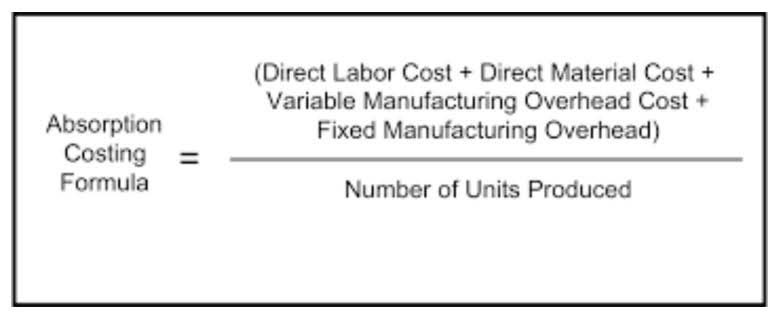
Banking corporations face a distinctive tax framework that taxes both income and capital holdings, a reflection of their substantial economic role and the city’s strategic financial oversight. These are based on either 100% of the prior year’s tax liability or 90% of the current year’s expected tax. Installments are due on the 15th day of the fourth, sixth, ninth, and twelfth months of the corporation’s fiscal year. Failure to make sufficient estimated Online Bookkeeping payments can result in underpayment penalties.
- These digital goods and services are subject to sales tax when provided to customers in New York.
- Reaching a $1 million estate in New York is not uncommon where property values are high, and a low exclusion threshold can mean the estate tax hits immobile capital, such as family farms or businesses.
- Such provisions underscore the city’s recognition of corporate structures and fiscal interdependencies.
- This stability ensures continuity in tax assessments for affected corporations until further regulatory updates are mandated.
- These federal adjustments can influence the calculation of taxable income, and the applicability of certain deductions and credits, ultimately affecting your city tax liabilities.
- The elections are irrevocable after the due date of the entity’s first PTET or NYC PTET estimated payment.
Interest rates on tax underpayments

Currently, the 21% rate is not set to sunset in 2025; it is a permanent provision under current law. Nonetheless, proposals from lawmakers to adjust the rate—either as part of deficit reduction plans or to address fiscal policy priorities—could arise in coming years. For now, however, there are no imminent scheduled increases or decreases to the federal rate for 2025. Entrepreneurs and nonprofit finance directors should stay connected with credible tax resources for legislative updates, as Congressional negotiations could shift in response to economic or political developments. For corporations with real estate holdings, deductions on depreciation and property taxes paid are available, which provides relief particularly for those heavily invested in property. To manage your tax responsibilities effectively, it’s important to be aware of the necessary filing requirements, along with Certified Public Accountant any available deductions or credits that might influence your tax obligations.

New York City musical and theatrical production tax credit (Articles 9-A and

Tax credits and deductions, filing status and residency status can influence what you pay. The final regulations provide some closure regarding the long process that began with the enactment of the tax reform, intended to simplify the New York tax regime. Taxpayers with questions about the extensive New York corporate tax rules should speak to their New York state and local tax adviser as soon as possible.

Taxes Still Affect Economic Growth, Contrary to Findings of Flawed IPS Study
The department has stated that it has the authority to waive penalties resulting from the retroactive application of the rules which are generally applicable to C corporations and New York S corporations. The rules do not apply to partnerships and nonresident individuals, but may impact the reporting requirements of corporate partners. CRT may also be the aggregation of rent due for two or more locations (e.g., floors) at the same taxable premise. Expenses for the improvement, repair, or maintenance of the tenant’s premises are generally not considered rent for CRT purposes. Upon adopting the BCT as of 2015, NYC did not abandon the old GCT regime, which previously applied to all corporations, as the city does not recognize the federal or state “S” election. Instead, the GCT now applies only to federal S corporations, regardless of whether the corporation makes an S election.
It encompasses more than just the income produced; it reflects your business’s integration into the city’s economic fabric. Under Section 1004 of the Business Corporation Law, as of October 1, 2009, Tax Clearance must be obtained from the Department of Finance when dissolving corporations that have done business in and incurred tax liability to the City of New York. You must complete the Request for Dissolution and mail it to Department of Finance, which will send a Dissolution Consent to the address provided on the Request. The Dissolution Consent must be attached to Certificates of Dissolution that are filed with the New York State Secretary of State. Working with a tax professional ensures compliance and helps identify strategies tailored to your specific situation. The corporate tax bill passed in 2014 is an impressive step toward fixing New York’s complex and burdensome tax system.

It’s crucial for these companies to either thoroughly understand these nuanced regulations or seek guidance from tax professionals to ensure they fulfill their fiscal duties within this vibrant economic environment. To calculate your corporate taxable income in New York City, begin by determining your federal taxable income, which serves as the foundation for your local tax calculations. You must then make specific adjustments as mandated by New York City’s tax regulations. Raises the tax rate on corporate income; increases the state conformity to federal taxation of corporate profit shifting; imposes an additional tax on individual business income in response to federal tax benefits for pass-through business income.
NOL carryforwards and carrybacks allow corporations to apply those losses against recent years of profitability to smooth tax burdens over time. Currently, taxpayers may take a net operating loss deduction based on the federal deduction, but because the NOL is computed on a pre-apportionment basis, it can have less nyc tax rate value if applied in a year where the taxpayer’s apportionment is lower. NOL carrybacks are further limited to two years with a maximum carryback of $10,000. Under the budget legislation, New York now adopts the post-apportionment approach followed by most states, removes the cap, and extends the carryback period to three years.
GCT is imposed at a rate of 8.85%, with a single receipts factor to apportion income based on cost of performance. Under the existing GCT rules, investment income (defined more broadly than under the new BCT) is separately apportioned using an issuer’s allocation percentage published by the city. Taxpayers who own a business that operates in NYC must need to understand NYC’s taxes . NNot only could these taxes result in significant liabilities, but the DOF has been increasing its audit activity, particularly targeting businesses based out of state that maintain an office or employees in NYC. This discussion serves as a primer for those who may not be familiar with the range of taxes imposed by the city separate from state-level taxes. Understanding New York’s corporate and business taxes is essential for businesses operating in the state.
Filing dates
You can request an extension of filing time, but not an extension of time to pay. If a due date falls on a weekend or a legal holiday, the filing must be made by the next business day. To pay online, you will need the notice number from your bill (first 13 digits) plus the billing zip code. Perelson Weiner is a full service Certified Public Accounting and consulting firm dedicated to serving the needs of successful entrepreneurs, high net worth individuals and families and international companies doing business in the United States.